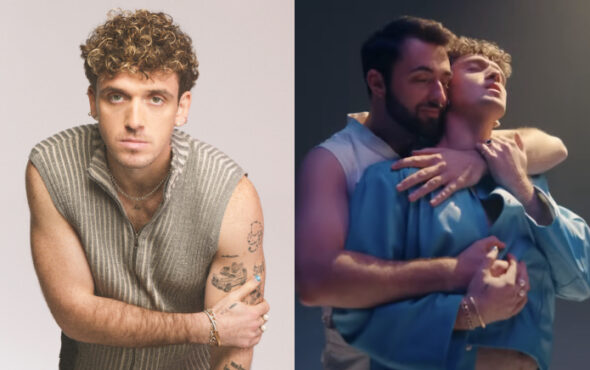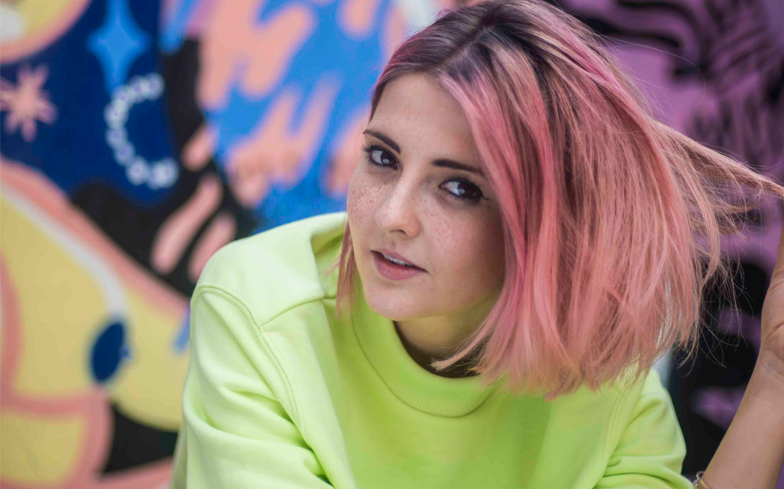
When we meet up with rising singer-songwriter Emily Burns in East London one sunny morning, it’s less than a week after the release of her superb new mini album Seven Scenes From The Same Summer.
Support for the collection of seven songs – carefully considered pop full of vulnerability, heartache and honesty all wrapped up in chewy melodies – has been overwhelmingly positive.
Two weeks earlier, Emily had leaving drinks after jacking in her 9 to 5 – having spent years as a receptionist at the world-famous Abbey Road Studios.
Now she’s well on the way to living her own dreams of stardom like the many famous musicians she’s seen pass through those doors, headlining her first ever show in London in the summer, and with plans for plenty more gigs in the coming months.
We caught up with the promising new British talent to talk about her addictive brand of pop, how American superstar Pink changed her life, and why she feels it’s so important to be open about her sexuality from the start of her career.
As a new artist breaking through, what’s the biggest challenge you find yourself facing?
The biggest challenge is when you’re releasing songs that are so personal to you – because I always write about things that are genuinely going on in my life – and thinking, ‘Are people going to be able to relate and connect with this?’ I’ve just had so many people reach out to say that, for example with Bitch, that was the breakdown of my first relationship, and it was nice that people were getting in touch and saying, ‘I was also dating someone who wasn’t comfortable in their selves and I went through the same thing with their parents and all these dynamics.’ That was crazy because it felt like such a personal experience to me, but it’s so nice hearing it from other people who have gone through the exact same thing.
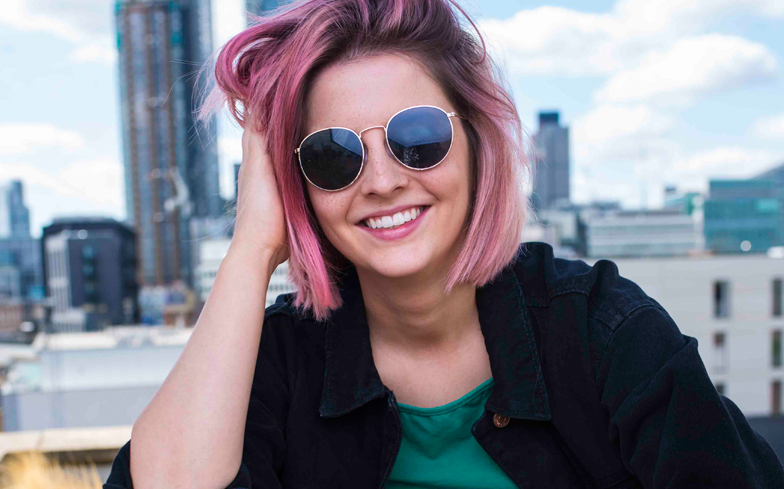
© Gabriel Mokake for Gay Times
I was going to pick up on Bitch. It’s a very popular song of yours, so what is the story behind it?
It was funny because I just sat in my bedroom and I was just playing some chords when that line, ‘So you can live without it, but you don’t have to be a bitch about it,’ came to me. It just felt so right for the time. It was a long time ago that relationship, and I’ve fully, well and truly got over it. But I guess it’s kind of my first love, and she was very much not up for being out and loud and proud about it. So when we broke up, she immediately got a boyfriend and it felt like I was eradicated from her life entirely. Whereas for me, it was a really big part of my life. I mean, she’s definitely not a bitch! I’ve seen her many times since, and we’re friends. The song was more tongue in cheek than anything. She’s actually a really nice girl.
How did the concept for Seven Scenes From The Same Summer come about?
I think I just realised that I was writing a lot about my relationships that were going on. See, where it says Seven Scenes From The Same Summer, that makes it sound like I’m going around. It’s certainly not all from one summer – I have to just make that clear. But everything I was writing about last summer and up until now was about my past relationships and my dating life, and I noticed that it was actually quite interesting. I just wanted to get that across. Dating is really hard, and to me, I’m just grateful for every experience I have because it becomes inspiration. Does that sound really bad?
Not at all. I was actually going to pick up on the whole diary concept because when you’re writing a song, how do judge being honest with your songwriting but not giving too much of yourself away?
There’s not much I won’t reveal. I wouldn’t say I’ve got anything to hide. I’m not going to delve into the gory details of things, but I try to give away as much of what I’m feeling as possible. The songs will then have more depth to them.
How important was it to you that you were very open about your sexuality from the start of your career?
It was very important because I didn’t want it to be this big reveal at any point. When I was 13/14 and growing up listening to music, I was really wanting there to be somebody who was putting music out who was open. I was like, ‘Is this normal, how I’m feeling?’ I want to be someone who those 13/14/15-year-olds now can listen to and look at me and my career and realise that it is normal. I wouldn’t want to make a big deal out of it. It’s just a regular thing.
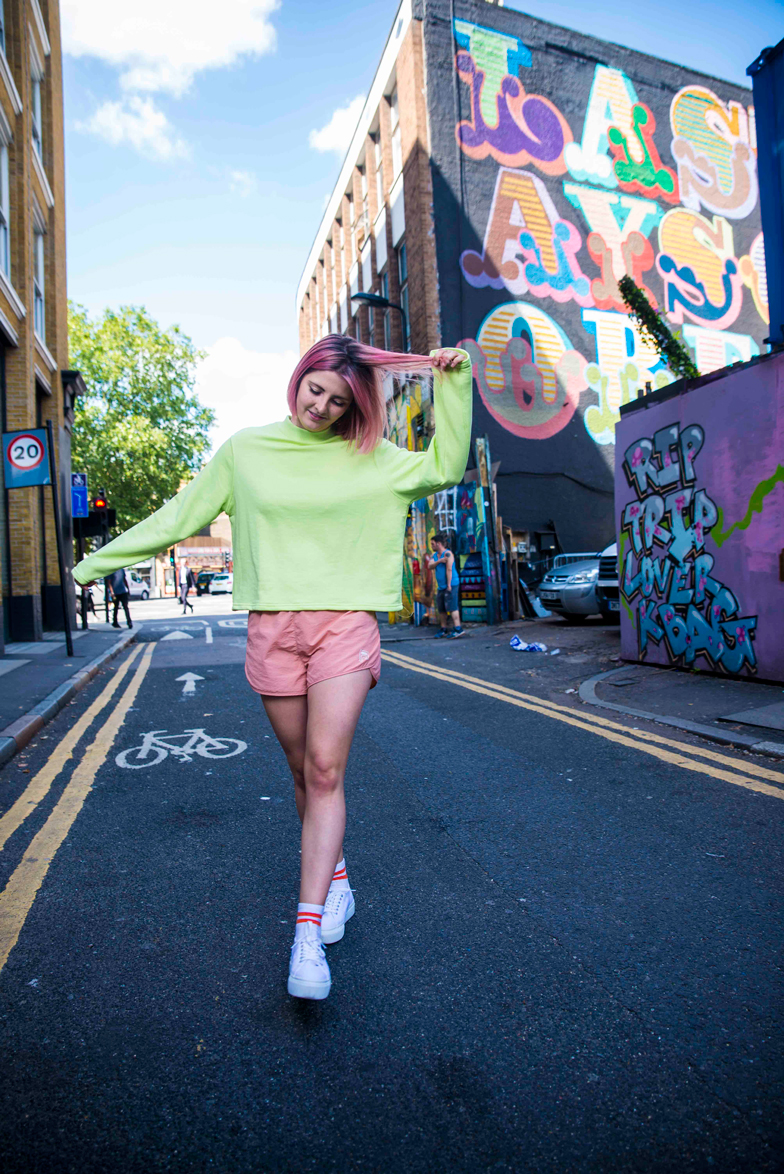
© Gabriel Mokake for Gay Times
Did you have any LGBTQ role models that you did look up to when you were younger?
I’m not sure how much you’d put her in the LGBTQ camp, but I was the biggest Pink fan growing up. I went to see Pink four or five times and at all of her concerts there were just so many gay women. That was definitely a big thing for me growing up. Looking around and just seeing everyone being open and comfortable in that space is why I went back so many times. Obviously it was because Pink is amazing too, but it was also because of the crowd. The environment at her concerts were just so welcoming. I felt really at home – even before I came out and I was only 12.
When it comes to these big pop ladies, they always seem to create safe spaces at their shows for young queer kids.
I went to see Pink in Coventry and it was the only place my girlfriend at the time would hold my hand in public. Looking back at it now, it’s quite emotional actually. She was obviously very shy about it and uncomfortable, but then in that place she was suddenly OK. That’s probably why I was like, ‘Let’s go again!’
It must feel amazing that you can now start building a career where you can offer that kind of safe space for queer kids today?
I’ve actually noticed it. I played Dot To Dot earlier in the year, which goes from Manchester, Bristol and then Nottingham, and I noticed at each gig there were quite a few gay people in the audience. It just made me feel really happy that these people are connecting with the music, and I hope that I can do the same as what Pink did for me and create that environment that’s a safe space. I want it to be a happy place for the community.
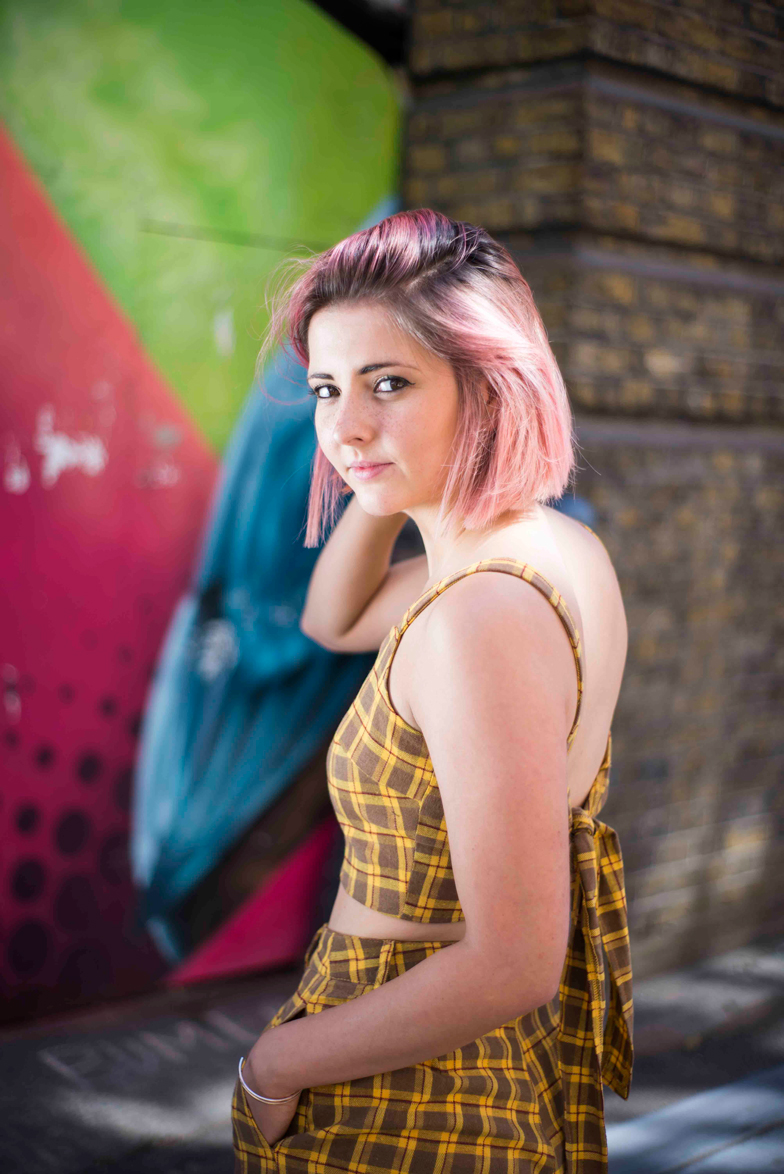
© Gabriel Mokake for Gay Times
There’s some incredible music coming through at the moment from queer female singers – why do you think it’s all happening now?
This might be a naive thing to say, but I don’t know if it’s just a generational thing. As our generation are growing up… I was very lucky when I was younger and I came out as my family were completely okay with it. Everything was fine for me. But maybe ten years before that, it wasn’t quite the same situation. So perhaps in the music industry now, people feel more comfortable going into it. Especially when you have people like Sam Smith who have kind of gone ahead being out and proud and become a great role model for everyone moving forward. I’m not sure why the women are only just coming through now, but it’s an amazing thing to see.
How important is queer visibility for LGBTQ youth?
It’s super important for young LGBTQ kids growing up to see these people being given a platform just the same as a straight person. It will only continue to grow, and that’s incredible. Young people will start to, from a younger and younger age, feel more comfortable with who they are. I hope there will be a time where people don’t bat an eyelid.
Emily Burns’ new mini album Seven Scenes From the Same Summer is available to stream and download now.



